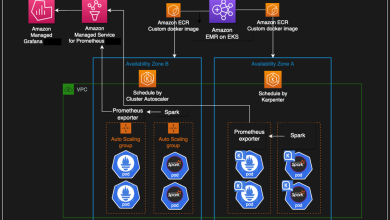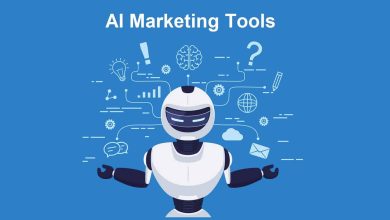
According to recent data from McKinsey & Company, nearly three in four businesses have started using AI for at least one business function. Yet when you read or watch the news, most of the examples cited are big enterprises doing big things with AI… However, a curiosity is growing among smaller businesses, too.
A study by IONOS discovered an increase in AI tool adoption among small and medium-sized businesses (SMBs) – rising from 20% in 2024 to 37% this year. However, many are fearful of integrating AI further into their operations due to the potential for misinformation, data concerns or because of hurdles such as time constraints and a lack of technical know-how.
From understanding its uses to calculating cost-effectiveness and dealing with ethical issues, it’s true that there can be a lot to think about when starting to use AI. But by breaking it down and using the right tools, we can move beyond the hype and make it a simple, everyday part of your business.
Choosing the right AI tools
There’s a lot of optimism towards AI as a potential game-changer for SMBs and it all starts by choosing the right applications. Whether it’s customer service, data analysis or operational efficiency, AI tools can vary and there are many things to consider when looking for the ones that fit a particular business or project. For example, SMB owners may need to consider cost, scalability as the business grows, compatibility with existing systems, and the level of customer support provided by the tool’s vendor. It’s also important to consider the type of AI models available, whether it’s an open-source model or a sovereign managed model, for improved safety, security and privacy, and so they also don’t get stuck in a dependency. Leaders should be able to make a decision with confidence, knowing what suits their business best and the right tools that support their goals.
But they should also think about the long-term usage of AI tools, instead of expecting immediate results. This could be for various services including automation, prediction or for business growth. Over time, these tools can enhance efficiency and provide greater control over business operations, proving to be a sustainable and valuable investment for the future. It’s important to select tools that can scale and evolve with the business, ensuring their continued relevance and utility in the long run.
Implementing and maintaining AI
Once an AI tool has been picked, leaders should consider which platform to use for implementing it. The choice depends on individual needs, the desired complexity of the AI and personal commitment.
An important factor to consider when starting out is opting for an expert-managed service, which offers an effective way to implement and maintain a professional AI system, without the SMB having prior knowledge. Model hosters have the expertise to navigate the jungle of AI models and ensure access to state-of-the-art solutions in a secure environment, which means small businesses don’t need to worry about becoming experts in coding and AI-building to create a successful system.
After the AI tool has been implemented, it will require regular maintenance and updates. Again, a managed system can do this on behalf of an SMB, creating regular backups and ensuring software updates are carried out, to enhance the security of the AI and prevent any future issues from occurring. This boosts overall data security, too.
Obligations and the important parts
As AI is still new to many, it’s important to know the requirements for setting it up and making it ethically compliant. This includes transparency and fairness, which is required by law, and there are free templates available online for this. Another major factor is the EU’s General Data Protection Regulation (GDPR) and the UK’s equivalent, meaning SMBs must take special care when handling personal data. There are consumer protection regulations too, such as the right of withdrawal, which must be observed by anyone who wants to operate an online store.
Infringements of ethical guidelines can become expensive to resolve, so understanding the guidelines is a must. There are many online guides, including from IONOS, which can help ensure the AI adheres to the correct requirements.
Adopting AI may seem daunting for small business owners, but it does become more manageable when approached step-by-step. Choosing ethical, practical AI tools is key and understanding AI’s potential and challenges, like setting up a website, aids in mastering it. As AI’s future unfolds, businesses must adapt and evolve with it, while making sure they know exactly where their data goes and where it is stored. SMBs can achieve this by self-hosting models – but this can be expensive and complicated to do. An alternative is looking for a trustworthy, sovereign hosting provider.





